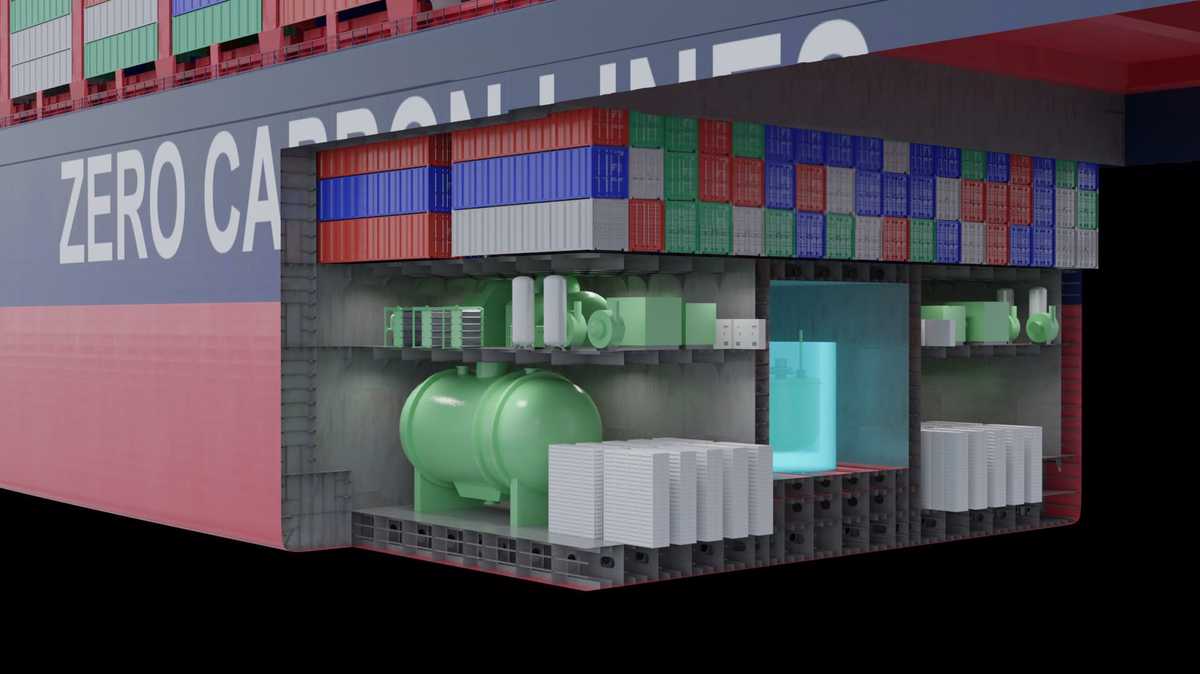ABS looks into nuclear propulsion for commercial vessels
The American Bureau of Shipping (ABS) commissioned US-based ship designer Herbert Engineering (HEC) to evaluate the viability and safety of using modern nuclear reactors for commercial marine propulsion.
 PHOTO: A vessel concept designed for ABS study on nuclear propulsion in commercial vessels. ABS
PHOTO: A vessel concept designed for ABS study on nuclear propulsion in commercial vessels. ABS
Two separate studies were conducted by HEC, one on a 14,000-TEU container vessel and the other on a 157,000-DWT Suezmax tanker.
The study on a container vessel concluded that two 30-megawatt (MW) lead-cooled fast reactors could significantly increase its cargo capacity and speed. In addition, the vessel would not require refuelling for at least 25 years.
Lead-cooled fast reactors are nuclear reactors that use liquid lead or lead-bismuth as a coolant, according to the World Nuclear Association. Its design allows it to produce high amount of power at atmospheric pressure, making it suitable for marine propulsion.
The study on a Suezmax tanker found that installing four 5-MW heat-pipe microreactors would increase the vessel’s speed but decrease its cargo capacity. However, the vessel would require refuelling only once in its life span of 25 years.
Heat-pipe microreactor is a small nuclear reactor that uses a heat transfer liquid to transfer heat away from and cool down the reactor's core. They are designed to be compact, lightweight and provide consistent power for a long time - making them suitable for large vessels that need longer propulsion.
 PHOTO: Concept showing the arrangement of nuclear reactor and supporting equipment on a vessel. ABS
PHOTO: Concept showing the arrangement of nuclear reactor and supporting equipment on a vessel. ABS
According to ABS, both vessel concepts would emit zero carbon dioxide emissions when propelled by nuclear energy.
“Our findings from this latest cutting-edge research underscore why the industry cannot afford to ignore the vast potential offered by nuclear propulsion both in terms of emissions reduction and operational efficiency,” said Christopher Wiernicki, chief executive of ABS. It will be possible to achieve net-zero emissions with nuclear propulsion, he added.
“Advanced or small modular reactors address many of the issues traditionally associated with nuclear for commercial maritime use, with enhanced safety and efficiency, reduced cost and waste and proliferation prevention. Nevertheless, many questions need to be answered and it is critical that industry evaluate these technologies with a laser focus on safety,” Wiernicki concluded.
By Konica Bhatt
Please get in touch with comments or additional info to news@engine.online






